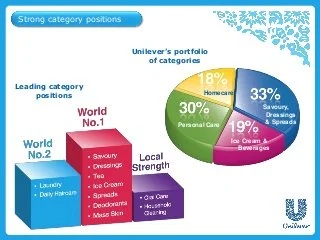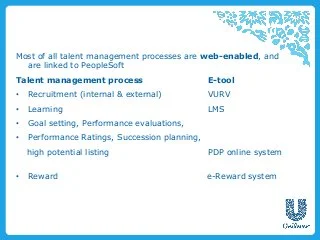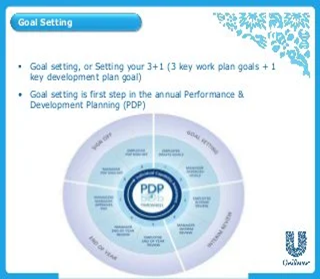BUS7B35 Resourcing and Talent Management Assignment Sample
Introduction
Unilever is a British multinational Fast Moving Consumer Goods Company (FMCG). Unilever has its headquarters in London, England and operates in countries like Asia, Africa, North America, the Middle East, West Europe and Latin America. Unilever has its manufacturing plant in Hefei, China. It was founded by two entrepreneurs Dutch Blue Brand Margarine producer Margarine Unie (Netherlands) and a British sunlight soapmaker Lever Brothers (UK) in the year 1929 (As, 2020). It was a business merger where two different legal syndicates were maintained as Unilever NV (Netherlands) and Unilever PLC (UK). Unilever is a public limited company. It owns 400 brands but focuses only on 14 core brands. Its products are food products, beverages, condiments, ice cream, health care products, personal care products, consumer goods, cleaning agents, pet foods, toothpaste and so on. Unilever is the world’s largest manufacturer of soap. Unilever’s personal care segment is the best selling product chain which generates revenue of approximately 21.1 billion Euros in the year 2020.
Unilever’s recruitment and retention processes
Unilever has many departments for career opportunities like a career in brands and development, a career in the supply chain and so on. Unilever offers employees dynamic remuneration, health care facilities and so on (Kowo, ObaAdenuga and Owotutu, 2019). Universally, 1,49,000 employees directly work for Unilever and thousands of workforce works indirectly with Unilever in Unilever’s supply chain process. Unilever’s main focus area is the FUTURE OF WORK. The future of work has 3 major areas- the work, workplace and the workforce. Unilever’s three big commitments for the future of work and its workforce are:
Helping employees in becoming fit for the future changes providing existing employees with flexible employment and developing skills of new and young employees hired – It is Unilever’s way of recruiting and retaining its best employees for the future. Unilever is reskilling and upskilling its employees and making them fit to adopt changes by the year 2025. Technological advancements in robots and Artificial Intelligence (AI) will continue to change and the advancement in this will also change the kind of job employee does. New ways of working in Unilever are all about retaining the best employees and resources, breaking the jobs into tasks and projects, coming up with new employment models to make existing employees fit for the future technological advancements like U-Work, U-Renew and Hybrid working conditions.(BUS7B35 Resourcing and Talent Management Assignment Sample )
Talent acquisition and retention of Unilever
Refer to appendix
Effect of the process on talent management and succession planning
Some effects of the process of acquiring and retaining employees on talent management are as follows:
To recruit and retain employees above managerial positions Unilever provides them with medical support with an unlimited amount and with no specific disease mentioned.
Unilever has a good pension policy for every employee retiring after a specific age. Unilever runs a programme named Leverine that involves family members of the employees in many activities related to the organization like social activities (Dundon and Rafferty, 2018). These activities help the family members of the employees in developing external relations with the family members of co-employees.
The Lister programme run by Unilever is for employees that are performing best at every level for three successive years. These employees are offered a salary that is 30% higher than the competitor’s offerings at the same level. This benefits in retaining employees and reduces trafficking by competitors. Sparkle programme is run by Unilever for developing skills of employees. This programme manages the capabilities and talent of industrial or factory workers and retains them for the future.
Staff retention through succession planning is very costly (Bhatia, 2019). Unilever does not believe in its succession planning programme as the only program to recruit and retain employees. Succession planning focuses on employees and their work which is based on career desires and motivations.
The advantages and disadvantages of such processes
Advantages of the external recruitment process
Hiring external talent will enhance diversity in an organisation. A specialised candidate has more relevant and experienced employees. New hires will bring new talent, new ideas and strategies for the company.
Disadvantage of the external recruitment process
External recruitment is expensive. New employees require more training and also need time to learn common practices of the organisation (Azeez, 2019). External recruitment affects employee morale.
Advantages of the internal recruitment process
Internal recruitment reduces the time to hire new employees. Internal recruitment helps to shorten on-board times. It also helps to reduce the cost of the organisation and strengthen employee engagement.
Disadvantages of internal
Internal recruitment may create resentment among the employees and this can lead to a gap in existing work. Internal recruitment is an inflexible culture.
Advantages of retention process
The retention process in an organisation has many benefits and it is cost-effective. The retention process has an organised culture. It also has many benefits of loyalty and it can increase the good work quality.
Disadvantage of retention process
Non-performing employees are retained from the organisation. There is groupism in the organisation. A poor working environment leads to retention. It also affects the quality of work.
Implication on long-term organisational performance and strategy
The recruitment and retention process followed by Unilever is for a long-term purpose. It has many programs framed for employees to increase the work performance that satisfies them at their workplace and also retains them for long term purposes. The strategy behind these program practices is to decrease the poaching or trafficking done by competitors.
Unilever can ensure its resourcing and talent management processes meet lawful and ethical people management requirements
Unilever ensures its resourcing techniques and talent management process which involves helping employees in becoming fit for the future changes providing existing employees with flexible employment and developing skills of new and young employees hired – It is Unilever’s way of recruiting and retaining its best employees for the future. Unilever is reskilling and upskilling its employees and making them fit to adopt changes by the year 2025 (Tien and Do Thi 2019). Technological advancements in robots and Artificial Intelligence (AI) will continue to change and the advancement in this will also change the kind of job employee does. New ways of working in Unilever are all about retaining the best employees and resources, breaking the jobs into tasks and projects, coming up with new employment models to make existing employees fit for the future technological advancements like U-Work, U-Renew and Hybrid working conditions. It also provides its employees with good remuneration, better pension plans and so on. It also runs programs like Leverine, Lister and Sparkle program.
These programs benefits employees and their families in many ways like it gives the opportunity to employee’s family members to get involved in social activities of Unilever and make external relations, it segregates best employees and provide them with the best salary in the industry and also develops skills of newly recruited employees. Unilever can further improve by improving the standard of living of its employees. By supporting small scale retail business partners to grow. Unilever’s Sustainable Living Plan (Siddique and Sultana, 2018) will make Unilever more competitive which will help Unilever in developing brands, expanding its supply chain and so on.
Conclusion
The Unilever company was a merger of two companies from various countries, and a new company encountered challenges that businesses based in a single country do not face. The Unilever company is renowned as a global producer of products like Surf and Omo. The new organisational culture that was adopted by Unilever is suitable for the new business platform facing the company. The structure was appropriate, noting that it facilitated the improvement of the organisation.
References
As, A.J., 2020. An Organization Study Report Of Hindustan Unilever Ltd.
Azeez, F.O., 2019. Impact of Selection Process on Organisational Performance: A Case Study of Unilever Nig. Plc (Doctoral dissertation, Kwara State University (Nigeria)).
Bhatia, R., 2019. Succession planning of an executive level position in midsize local government organization (Doctoral dissertation).
Dundon, T. and Rafferty, A., 2018. The (potential) demise of HRM?. Human Resource Management Journal, 28(3), pp.377-391.
Kowo, S.A., ObaAdenuga, O.A. and owotutuSabitu, O., 2019. Efficacy of E-recruitment Practices on Employee Retention in Multinational Corporations. Economics and Culture, 16(1), pp.161-171.
Papa, A., Dezi, L., Gregori, G.L., Mueller, J. and Miglietta, N., 2018. Improving innovation performance through knowledge acquisition: the moderating role of employee retention and human resource management practices. Journal of Knowledge Management.
Siddique, F.B. and Sultana, I., 2018. Unilever Sustainable Living Plan: A Critical Analysis.
Tien, N.H. and Do Thi, Y., 2019. Comparative analysis of knowledge management software applications at E&Y and Unilever Vietnam. International Journal of Multidisciplinary Research and Development, 6(10), pp.22-27.
Appendix
Talent acquisition and retention of Unilever

Figure: Talent management in Unilever

Figure: Strong category position of Unilever in talent acquisition and retention

Figure: Talent management process of Unilever

Figure: Goal setting for PDP in Unilever

